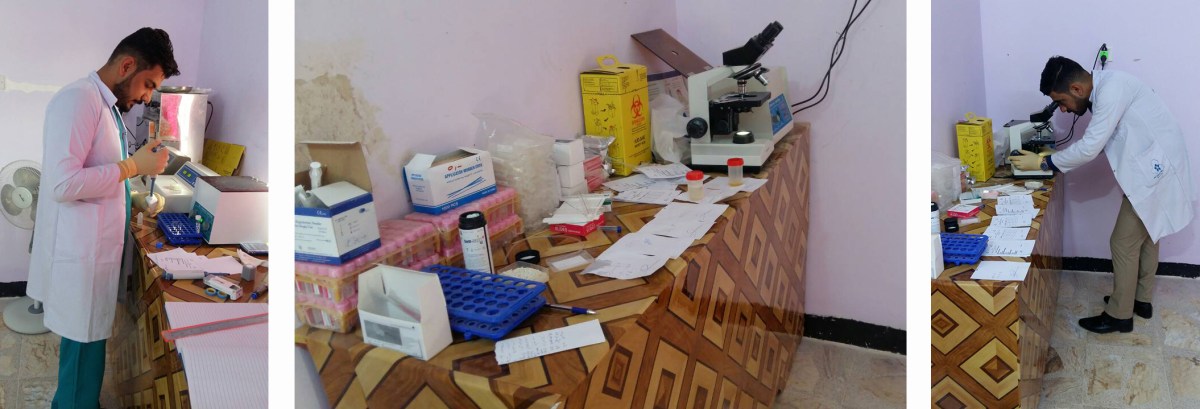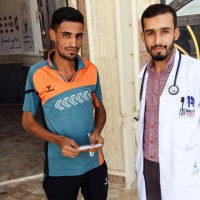“I am very happy to work in this place.” For Dr. Ahmed, every day at the medical clinic you started in Baiji is a good day. “In fact, Baiji is my city. I was born and lived there for many years.”
Leaving his hometown wasn’t much of a choice for Dr. Ahmed. When ISIS first came to town in June 2104, they immediately set fire to the police station and courthouse and freed every inmate in the local prison. Then, they took control of the oil refinery—the largest in the country. For Dr. Ahmed and his family, it was clear that leaving town was their best shot at survival. Most of his neighbors made the same choice.
Three years later, the tide is moving the opposite direction—Baiji is liberated and residents are moving home. But picking up their old lives is not a simple matter. A year ago, a reporter described Baiji this way:
“The city, once a bustling home to 200,000 people, is so utterly destroyed that there is little, if any, hope of rebuilding. It is deserted aside from security forces essentially left to defend a memory of hope amid the remains of buildings wrecked by a hailstorm of burning metal chunks caused by the battles.”
Iraqis have proven that they are resilient—they’re moving back to liberated cities and rebuilding, even when it seems impossible. But it takes time. With similar stories playing out in cities across Iraq’s north and west, government services—including medical clinics—are slow to reopen.
Thanks to you, residents in Baiji didn’t have to suffer until the government repaired and reopened a clinic here. Just as you bridged the gap in Mosul and Dream City by opening primary health clinics that function until the government can resume services, you provided a clinic for residents of Baiji too.
And for one man named Ali, it likely saved his life.

When Dr. Ahmed started his shift at the clinic a few weeks ago, he was prepared to see 50-80 patients that day. He expected to see many of the same cases he sees every day—hypertension in older patients, and skin diseases like scabies and leishmaniasis in the young.
Then, a young man named Ali came in to the clinic with a sore throat—not an uncommon complaint. But he also complained about being thirsty and hungry all the time, and that he was never able to eat enough to feel full.
Dr. Ahmed suspected diabetes, but needed a blood test to confirm the diagnosis. Luckily for Ali, you equipped the clinic with a basic lab. It’s not fancy, but this table-top station for blood and urine tests has greatly expanded the clinic’s services. 
Ali’s blood test revealed that not only did he have diabetes, but he was in an extremely critical condition.
“If the diagnosis of Ali’s diabetes was missed or delayed further,” Dr. Ahmed explained, “he could develop a very dangerous condition which is actually fatal… it is common in newly diagnosed diabetics, and it is dangerous, but fortunately treatable.”
It is treatable if you have access to a doctor, if you have a lab that can diagnose the issue, and if you can get treatment. If you or a loved one has diabetes, you know how essential timely medical care is. Before you established this clinic, Baiji’s residents didn’t have any access to medical care.
We recently checked in with the doctors at the clinic, to see how Ali is doing. “Ali is very good and comes regularly to the clinic to check his sugar level. Last time the result was normal. He is on diabetes medications and doing great.”
And Dr. Ahmed continues to see patients at the clinic in his hometown. After being displaced from home for three years, he loves being able to serve his former neighbors. “I feel happy to help people and to relieve their pain and suffering.”
Thank you for showing up to stand in the gap for families who are rebuilding from the ashes of war. And thank you for empowering local heroes to save lives and unmake violence. Together, we are remaking the world.


